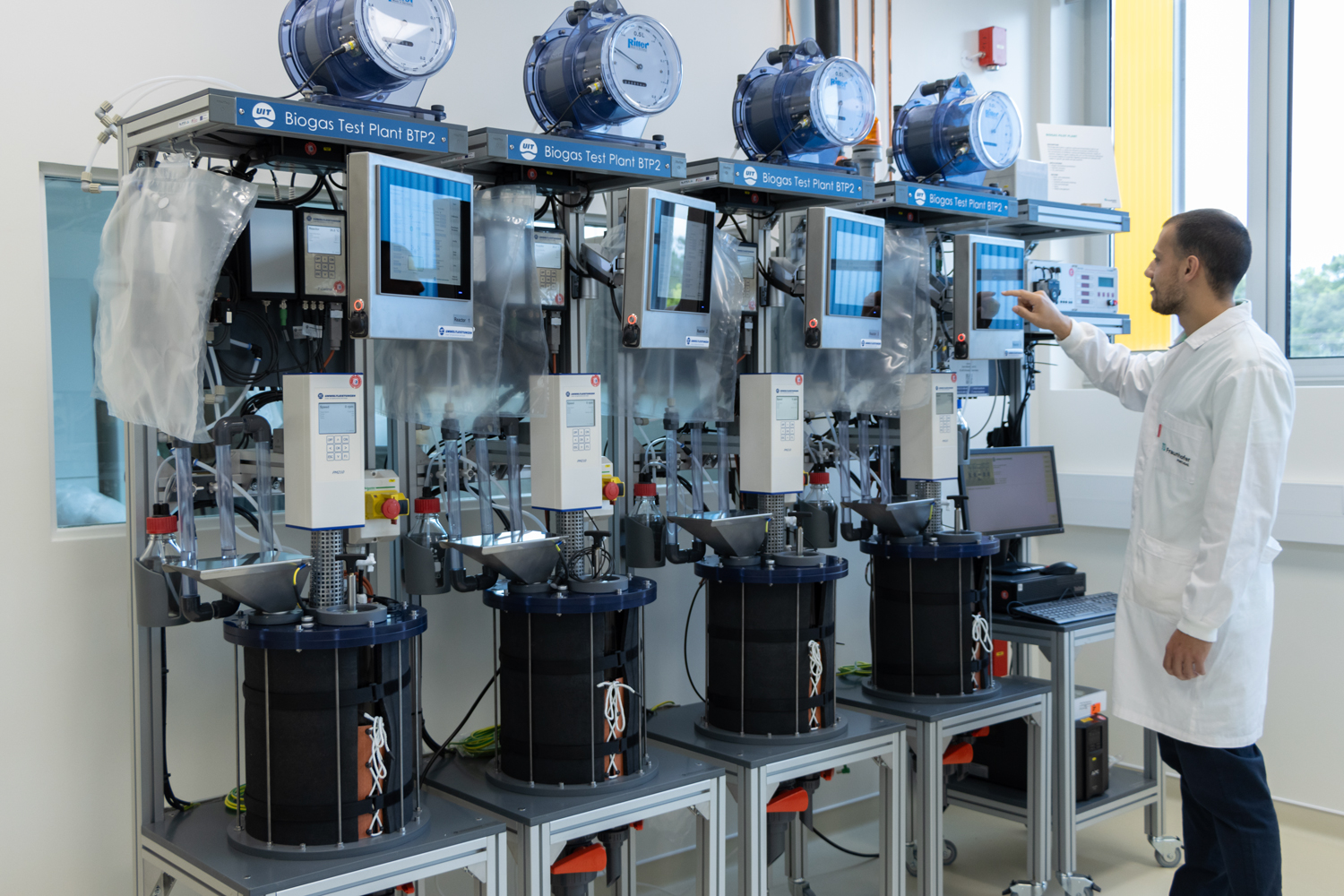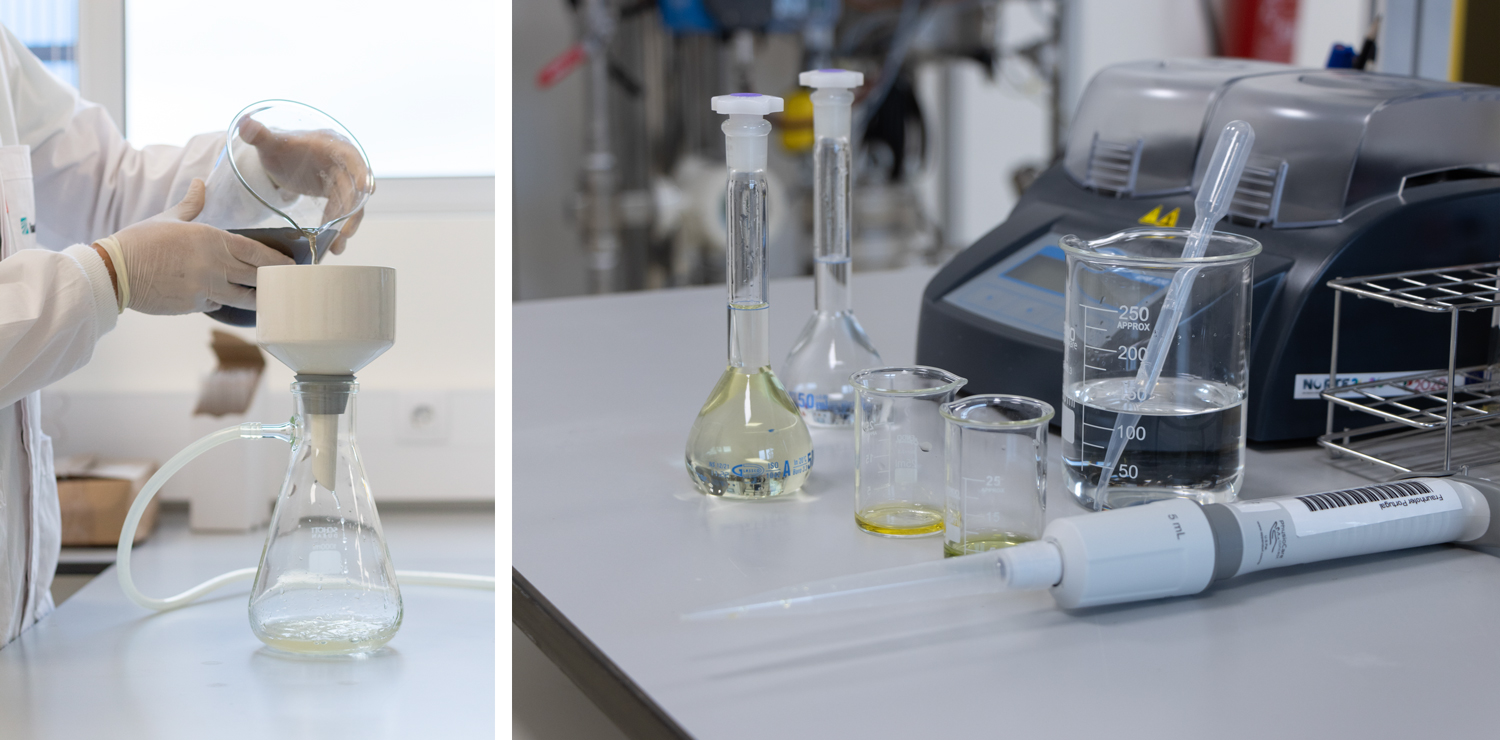
Water
Water is essential for supporting life, serving as a medium for processes, providing food, acting as a raw material in agriculture and industrial production, facilitating transport and cleaning, generating energy, and functioning as a critical component of infrastructure. Addressing challenges such as drought, water scarcity, pollution, and regional distribution conflicts is vital. In line with its mission, AWAM is dedicated to ensuring a clean and reliable water supply for society, as well as offering a valuable resource for Portuguese industry. The development and testing of innovative technologies for water treatment, reuse, and consumption reduction are the key avenues that AWAM is actively pursuing.
Fraunhofer Portugal AWAM focuses on recovery technologies for water and wastewater to promote reuse in industrial and agricultural production. This initiative is particularly important given the growing pressure on water resources and the need to minimize organic inputs into water bodies. The enabling technologies include:
- Inorganic membranes
- Efficient advanced oxidation processes
- Photochemical treatment methods
- Process-integrated water quality monitoring
The center develops tailored solutions in collaboration with innovative companies, academia, and other relevant partners.

Application Markets:
- Industrial and municipal wastewater
- Textile
- Pulp and paper
- Chemical and petrochemical
- Dairy
- Agri-food and beverage
 Fraunhofer Center for Advanced Water, Energy and Resource Management – AWAM
Fraunhofer Center for Advanced Water, Energy and Resource Management – AWAM


